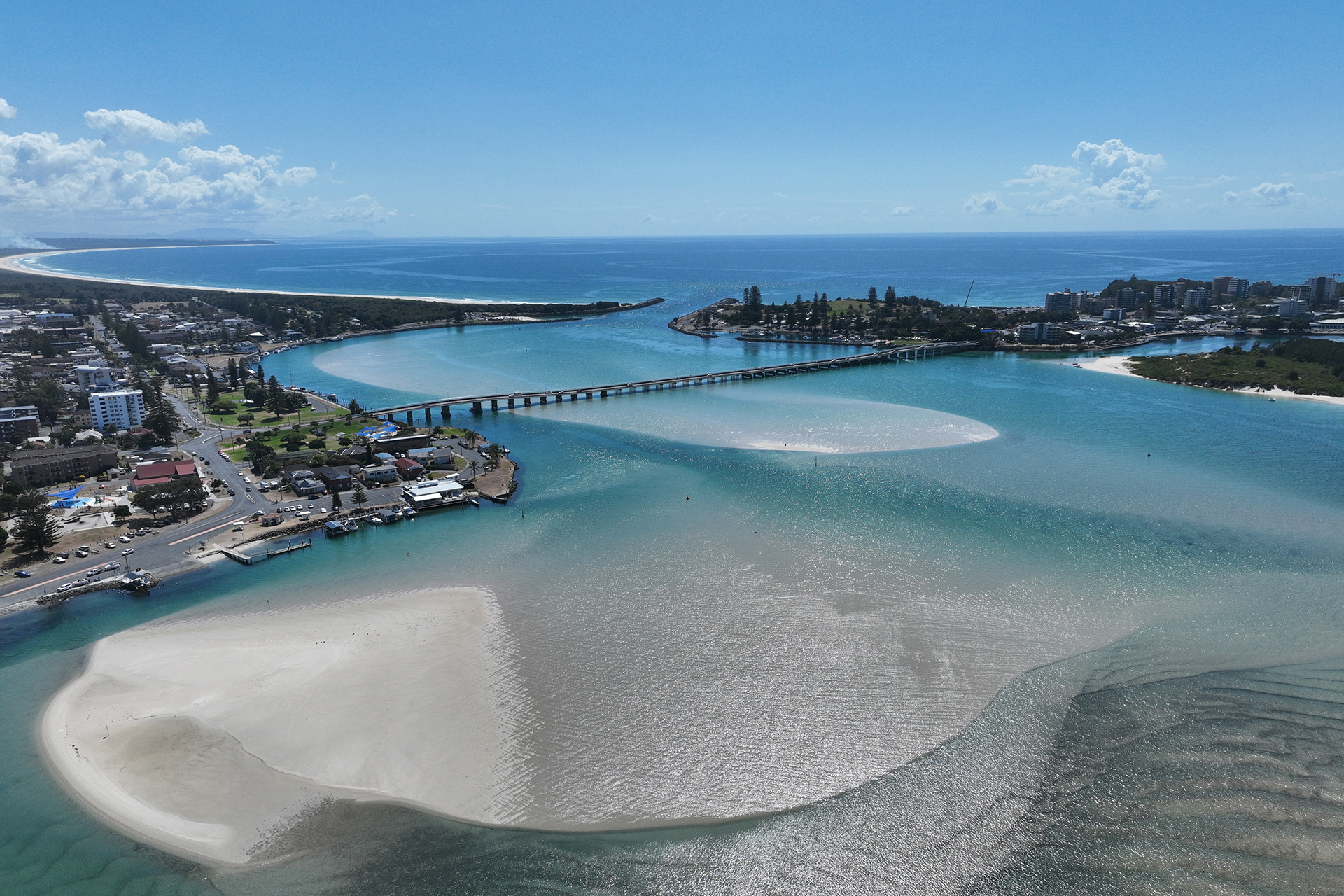The Wallis and Smiths Lake Estuaries are located on the Mid-North Coast of New South Wales, approximately 300 km north of Sydney. The ecological health of these estuaries is under pressure due to past and present land management practices and the impacts of climate change, including prolonged drought, more extreme flood events and rising sea level.
Healthy waterways and catchments are vital systems that keep local towns and communities thriving and ensure a healthy and vibrant future. The health of these estuaries is important to the community, particularly in terms of the recreation, oyster production, commercial and recreational fishing and tourism opportunities they provide.
MidCoast Council and the Department of Climate Change, Energy, the Environment and Water jointly funded the Improving water and land management through ecological health assessment – Wallis and Smiths Lake Estuaries project to monitor and evaluate the health of the Wallis and Smiths Lake Estuaries and associated impacts from high-risk sub catchments.
Good management of our estuaries relies on understanding how they work. Only through the collection and evaluation of scientific data can we make informed decisions about management actions to achieve the environmental, social and cultural outcomes the community expect. This project will assist in decision-making to address declining water quality, ecosystem health, and resilience.
MidCoast Council has partnered with the department to undertake annual monitoring and reporting of the estuaries using indicators specifically selected to identify changes in ecological health in response to management actions (using NSW estuary ecosystem health monitoring protocols).
This project will support decisions about the ongoing protection of 'high conservation' areas, guide and report on the remediation of identified areas, and highlight areas that may require further action to help protect the estuaries against further declines in water quality and ecological health.
The data collected under the monitoring program is published in a report card format that will raise awareness among the community and key stakeholders about the ecological processes and health of the Wallis and Smiths Lake Estuaries and their catchments.

Aerial view of Wallis Lake